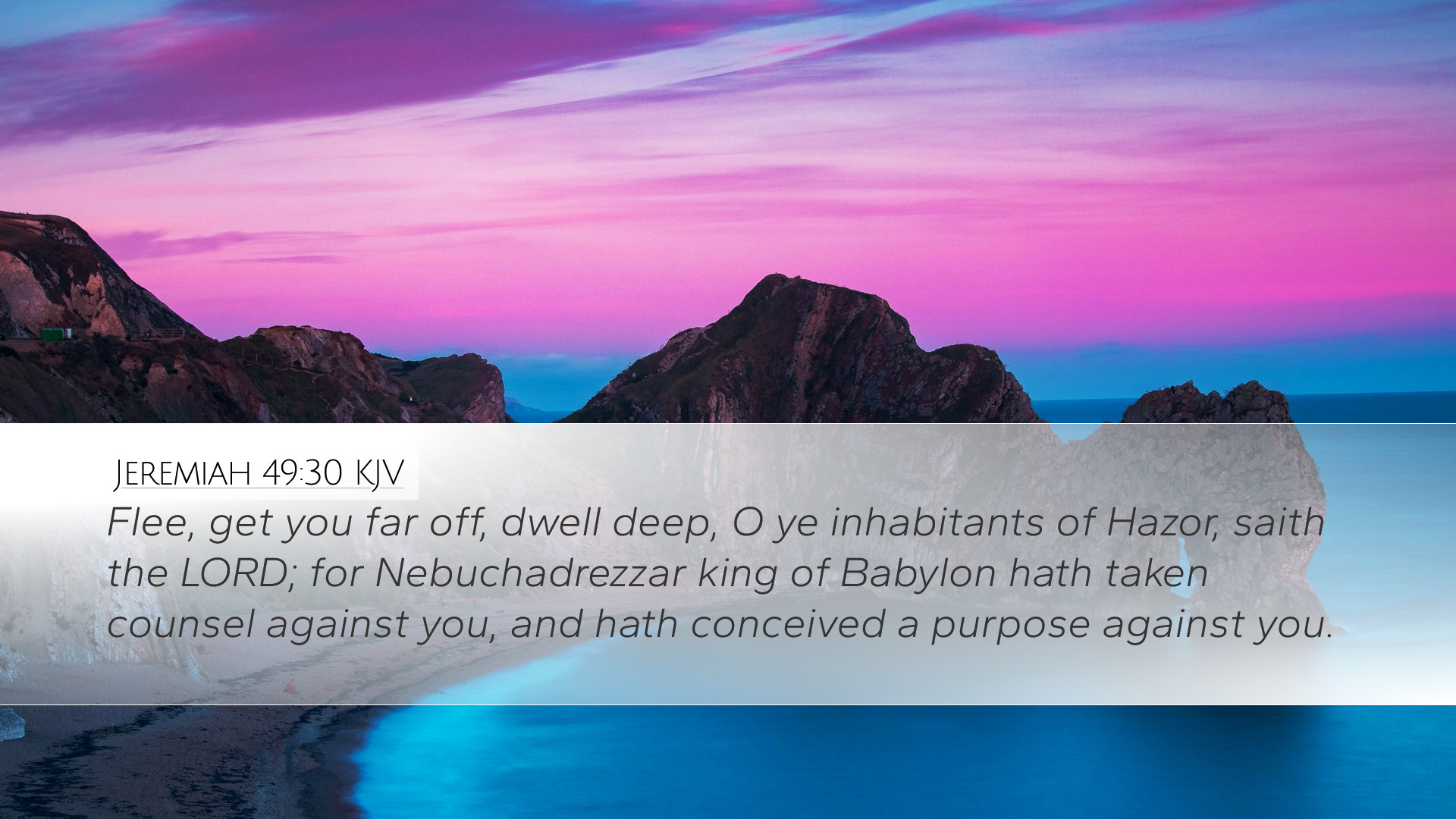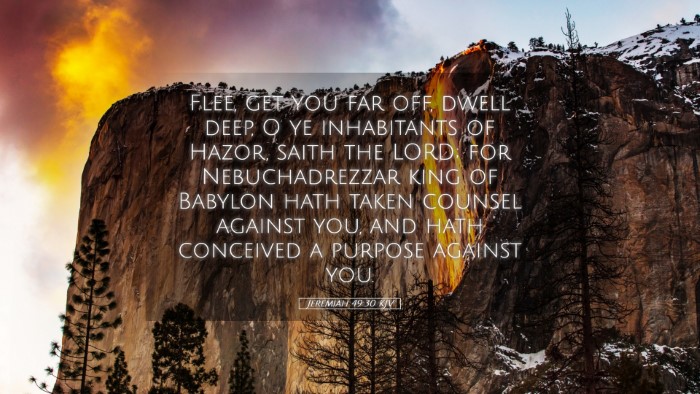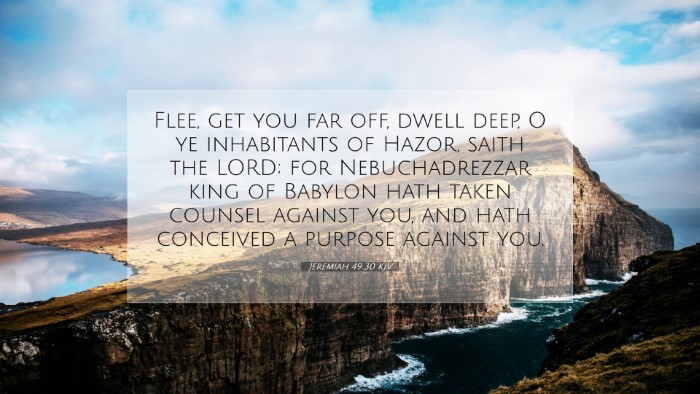Commentary on Jeremiah 49:30
Verse Context: Jeremiah 49:30 states: “Flee ye, retire, get you far off, dwell deep, O inhabitants of Hazor, saith the Lord; for Nebuchadrezzar king of Babylon hath taken counsel against you, and hath conceived a purpose against you.” This message is part of God's judgment against various nations, specifically addressing the inhabitants of Hazor.
Historical Background
Hazor: Historically, Hazor was a significant city in northern Israel known for its strategic location and military strength. It was previously destroyed by Joshua but had been rebuilt (see Joshua 11). The Babylonians, under Nebuchadnezzar, were expanding their dominion during this period, and Jeremiahs' prophecy serves as a warning of impending destruction.
Literary Analysis
This verse is a part of a larger collection of prophecies concerning several nations and their fates as enemies of Israel. The format here is instructional, showing God's sovereignty and intentions in regards to nations that oppose His will.
Commentary Insights
Matthew Henry's Commentary
Matthew Henry emphasizes the desperate situation of Hazor’s inhabitants. He notes that God commands them to avoid the coming destruction by fleeing and suggesting that their previous pride and confidence in their defenses would prove futile against the impending Babylonian siege. The call to “dwell deep” signifies a retreat to a place of safety, underscoring the seriousness of the threats.
Albert Barnes' Notes
Barnes interprets this verse as a warning of the invasion that Babylon would launch. He reflects on the significance of the advice to “flee” and how it underscores the necessity for the people to recognize the overwhelming power of Nebuchadnezzar. Barnes also highlights the strategic implications of the city's geography, suggesting that its isolation would not save it from judgment.
Adam Clarke's Commentary
Clarke provides an exegesis that ties the prophetic word back to the historical setting of Hazor. He points to the metaphorical language used by Jeremiah to capture the urgency of the situation. Clarke explains that the inhabitants need to understand God's purpose and respond correctly to their reality by taking the threat seriously and acting decisively. He emphasizes obedience to God’s warning as a pathway to survival.
Theological Implications
Concerning the overall narrative, this verse speaks to the broader theme of God's judgment against nations and the call for repentance. It forces both historical and contemporary readers to evaluate how nations or groups may similarly stand against God's purposes and the eventual consequences that may follow.
Application for Today
For pastors, students, and theologians, Jeremiah 49:30 can serve as an admonition against complacency in spiritual matters. The command to “flee” is symbolic of the inner call to repentance that one must heed when faced with the realities of sin and judgment. It emphasizes the necessity of being vigilant and proactive in faith.
Conclusion
This prophetic utterance holds significant value in understanding the interplay of divine judgment and human agency. The insights from various commentaries allow for a multifaceted understanding of the text, encouraging a deeper theological reflection. Whether for preaching, teaching, or personal study, Jeremiah 49:30 remains a poignant reminder of God's sovereignty and the need for attentive obedience to His word.


